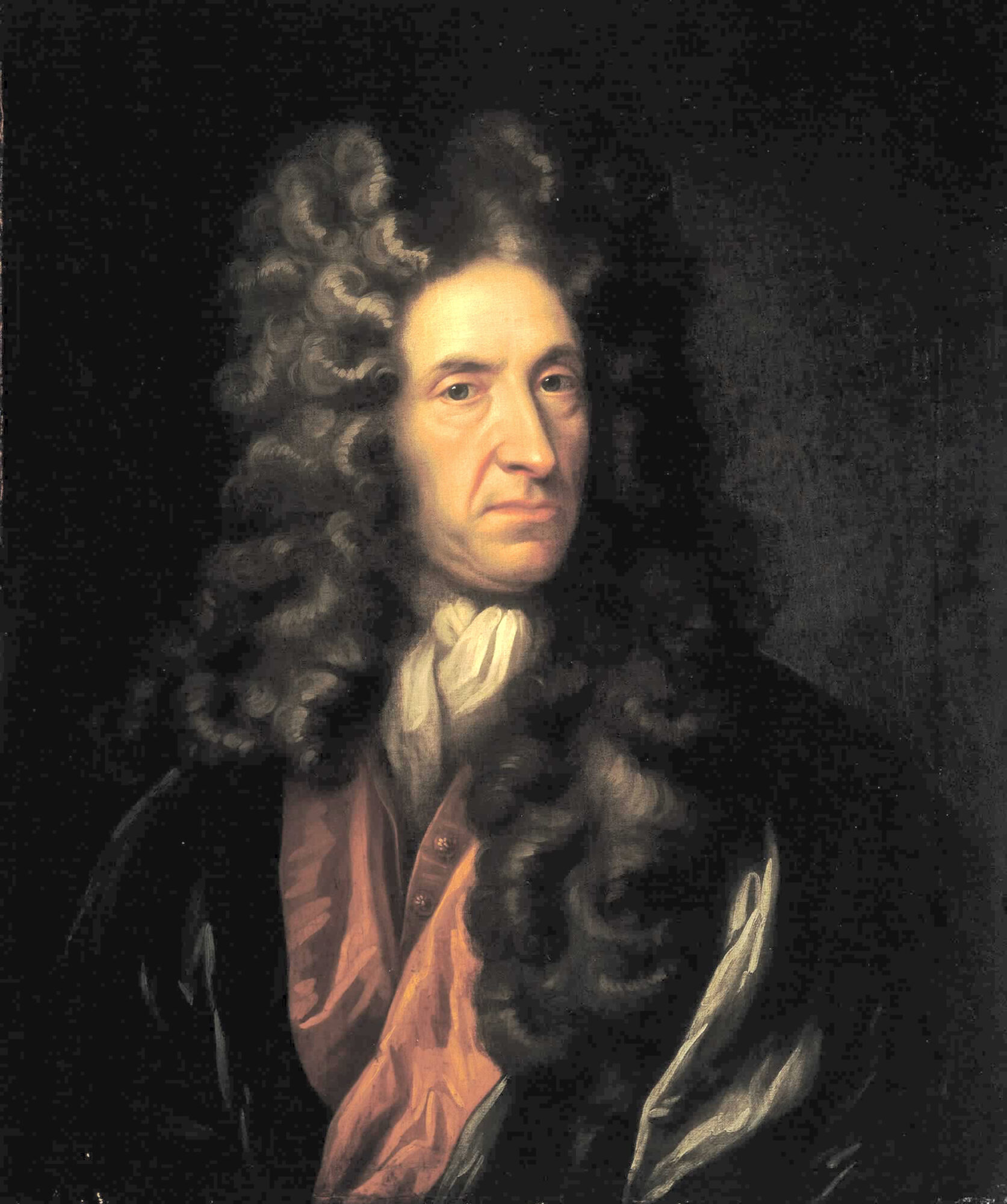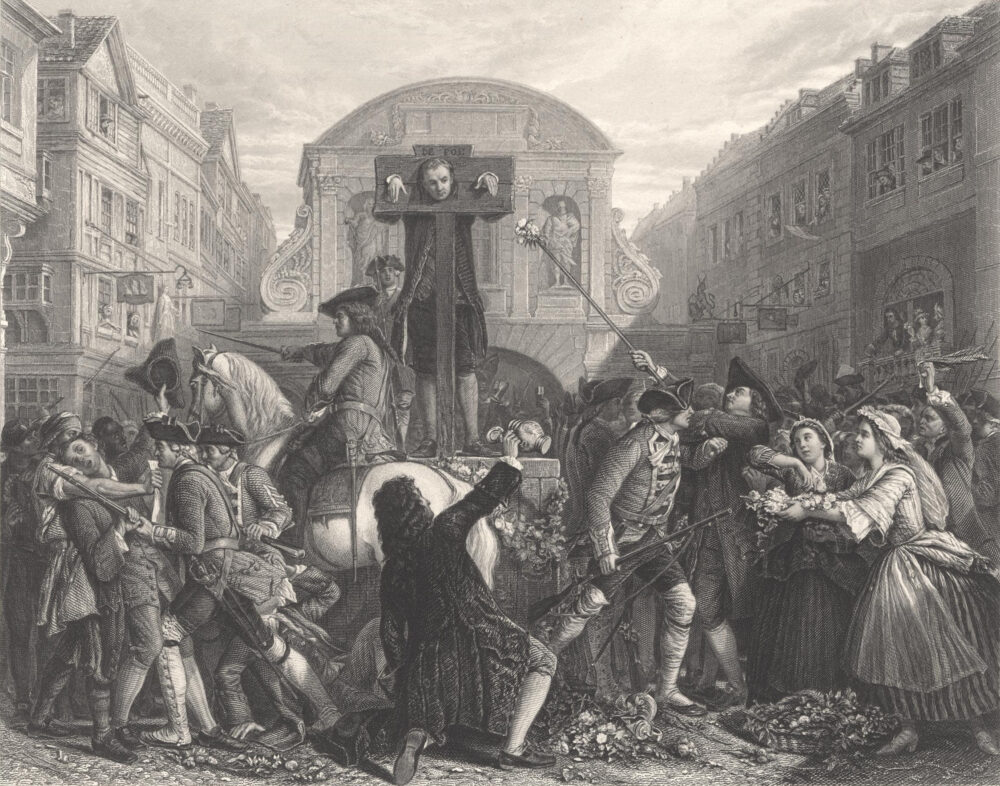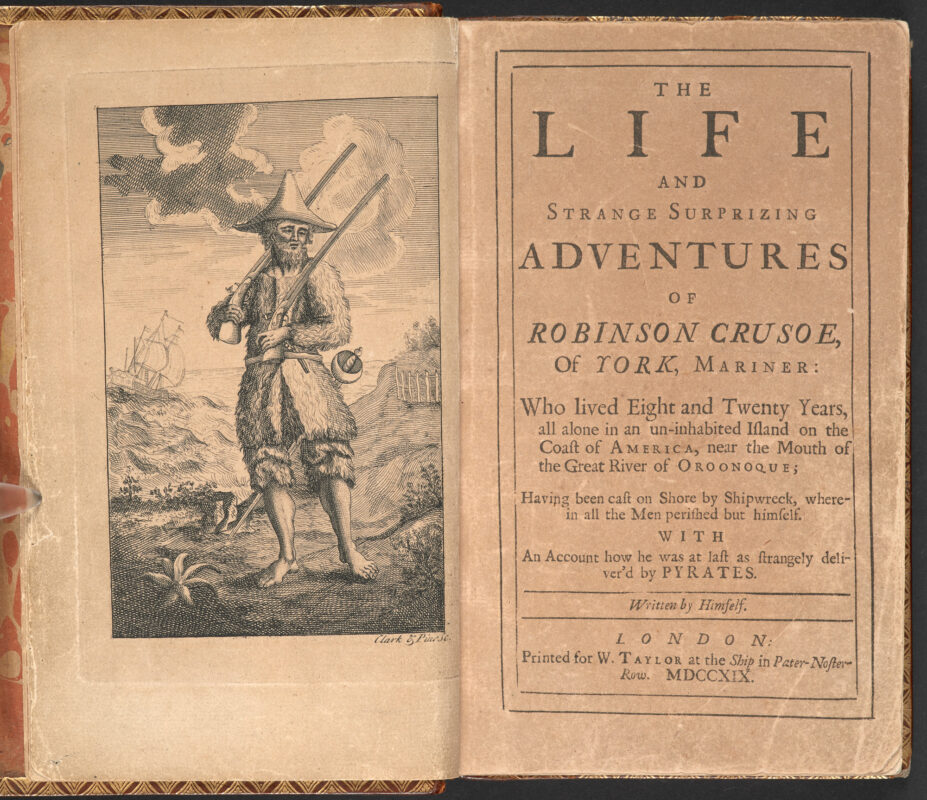Daniel Defoe’s life was every bit as exciting and turbulent as that of his most famous hero, Robinson Crusoe. Probably even more so, for where Crusoe spends 28 years on a desert island, Defoe found himself in wildly different roles and places of English society: a merchant trading in luxury goods, a secret agent to the king, a husband and father of eight children, a rebel cast into prison, a fighter against social injustice, a political journalist, a multiple bankrupt, a publishing entrepreneur – and the first best-selling author of a novel.

Daniel Defoe was born in London in 1660, the son of a wealthy merchant. As a child, he experienced the Great Plague of London in 1665 and processed the traumatic memories of it in the fictional diary A Journal of the Plague Year (1722). Originally educated for a career in the Church, Defoe married in 1684 and became a merchant. He traded goods to and from the English colonies in America, but also imported wine, food and textiles from France, Italy, Spain and Holland, where he also made trading trips himself. After his business went bankrupt in 1692, Defoe turned to writing and journalism. In his essays he dealt with the political, economic and religious issues of his time. But he did not only write about politics, he also got involved in an ill-fated rebellion and later became a secret agent to the king. Because of his scathing satires against the political establishment, Defoe was arrested in 1703, pilloried and sentenced to pay a heavy fine, which again brought him to the brink of bankruptcy. In spite of having been repeatedly imprisoned for political pamphleteering as well as for debt, Defoe managed to establish himself as a respected journalist and publicist. His oeuvre comprises several hundred writings, including pamphlets, essays, journals and novels.

It was not until he was nearly sixty years old that Defoe published his first novel, The Strange and Surprising Adventures of Robinson Crusoe (1719), an adventure story inspired by the fate of the real-life cast-away Alexander Selkirk. Robinson Crusoe was an instant success with readers, leading Defoe to produce to sequels in rapid succession. These were followed by other adventure novels such as Captain Singleton (1720), whose hero turns pirate, sailing not only the seven seas but also crossing Africa on foot; or fictional memoirs such as those of Colonel Jack (1722), an orphan who becomes rich through criminal dealings, Moll Flanders (1722), a prostitute and survivalist who makes her fortune in the American colonies, and Roxana (1724), a beautiful but penniless widow who makes her way up in society by becoming the mistress of several rich men (and using their wealth to set up her own successful business). Defoe is considered one of the fathers of the English novel. His detailed writing style, influenced by his career in journalism, was coupled with socially critical themes, exciting plots and extraordinary characters.

In the last ten years of his productive life as a writer, Defoe wrote mainly non-fiction such as manuals and travel guides; one of his best-known works is the large-scale A tour thro’ the whole island of Great Britain (1724–1727). Other books dealt critically with the decline of the social order or with supernatural phenomena. Daniel Defoe died on 24 April 1731 at the age of ninety. He is buried in Bunhill Fields, London. In 1870, a monument was erected there in his honour, paying tribute to Defoe as the author of Robinson Crusoe.
Text: Isabel Karremann
Sources:
- Furbank, Philip Nicholas, and W.R. Owens. A Political Biography of Daniel Defoe. New York: Routledge, 2015.
- Richetti, John. The Life of Daniel Defoe: A Critical Biography. Oxford: Wiley-Blackwell, 2005.
